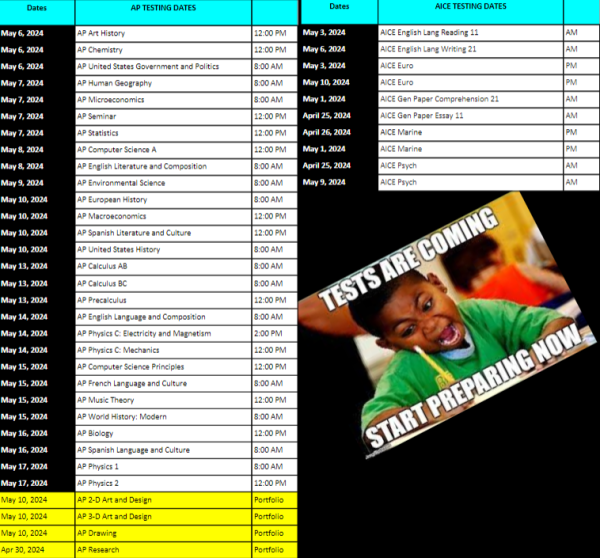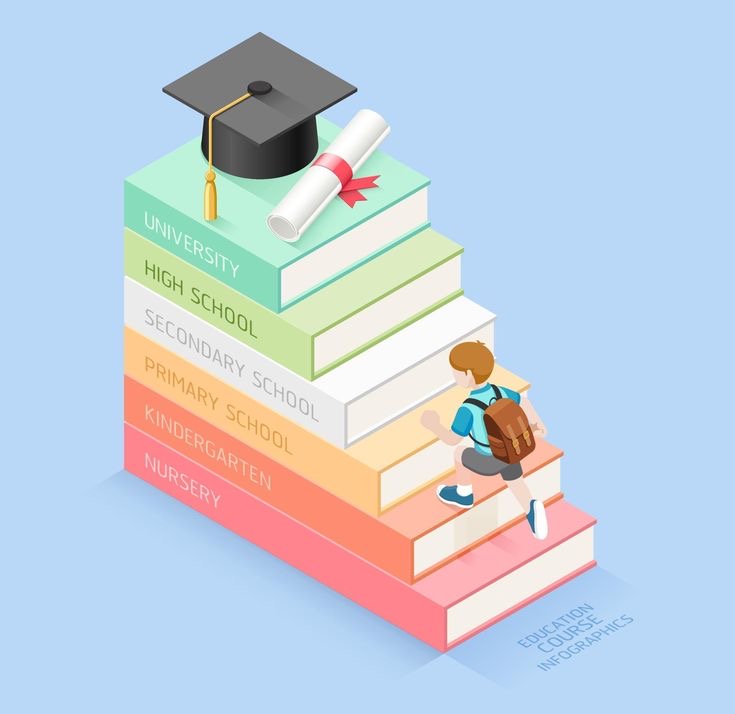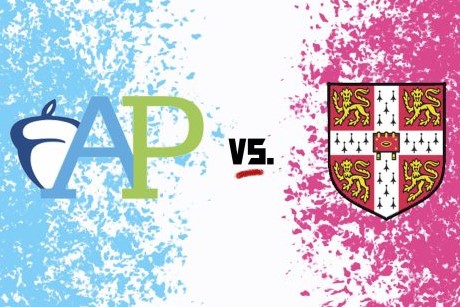AP and AICE teachers have started moving into their review units, and students have started to fill the library after school, which could only mean testing season has officially started, and it’s time to lock in. It’s important to prepare for the stress that comes with the testing season so you can perform to the best of your abilities. In order to help students taking AP or AICE tests, The Blue and White interviewed students and teachers to get a better understanding of how they have chosen to prepare for the upcoming exams.
It is widely agreed upon that properly preparing for exams raises students’ testing confidence which, in turn, raises their test scores. When asked how he has prepared his students, Mr. Sensiper, an AP Calculus AB and BC teacher stated, “I have given them a formal mock AP exam, along with a bunch of practice AP exams that they can do at home. They’ve also been given sample AP exam questions to work on both together and as part of the homework.” Ms. Gardiner, an AP Lang teacher, also shared how she prepares her students: “Since the students have college credit on the line, I really believe in making sure everything we do in class is geared towards helping them pass the AP exam. Currently, we are doing an essay a week, plus our normal multiple-choice practice, to prepare. We are spending a lot of time reviewing and conferencing.”

A common challenge interviewees have faced this semester is time management. There never seems to be enough time in the school year to complete every unit while also having time for reviews. However, we have received some tips on how to study, outside of school. Mrs. Brown, an AICE European History teacher, shared her advice: “I would recommend that you plan to spend an hour to two hours weekly outside of class time working on each advanced course that you take. I would also recommend that you have very solid reading and writing skills before planning on taking these courses, as many of them require essay-style tests.” A majority of the students taking AP and/or AICE exams have more than one of these high-level courses which makes balancing these commitments harder. Sophomore Amari Harris explained that “breaking down the workload from each period and knocking it out in order of what is due sooner” has helped him a lot. Junior Shila Gillis, had similar ideas and stated: “It’s something that you get better at over time. I don’t think it’s something that you can do right away. You need to establish some type of routine or schedule. Let’s say you have a lot of clubs, or you have a lot of side classes that aren’t AP, get those out of the way first, so that way you can make at least two to three hours to get your AP work done or study.”
Although these tests are important, it’s crucial that you don’t let yourself get too worked up over them, as it may cause you to overthink during the text. Mr. Mellon, an AICE Psychology teacher suggested, “The night before (your exams), relax, get a good night’s rest, and don’t let the stress get to you; it’s just a score on a test, not a definition of who you are.” AP Macroeconomics and AP European History teacher, Mr Russell, eased the stress testing can cause by stating, “passing the exam is nice, but even if you don’t, you learn a lot and the colleges overwhelmingly prefer kids who have taken a lot of AP exams. As the weightlifters say ‘No pain, no gain!’”
Before signing up for any AP and/or AICE classes, it is extremely important that you carefully think over your decisions before finalizing them. Many of the students interviewed agreed that they have some classes on their schedule that they regret taking. When asked what the reason for this was, Sophomore Sophia Powell said, “I personally don’t think all my classes are interesting and prepare me for college.” Shila also shared a class she regrets taking: “AP Physics, not because I don’t like the teacher, Mr. Dom, I love Mr. Dom, he’s one of my favorite teachers. However, I realized that I just didn’t care about the subject. I go there every day like, ‘Why am I even taking this? This isn’t for my major.’ I just have no interest in physics at all. It’s also a really hard class. I feel like I could have easily not taken it and saved myself a lot of stress.”
Overall, the most important thing to do is take a deep breath and try your best. Regardless of your scores, these exams provide you with an experience that will help you in any career path you choose. The Blue and White wishes each and every student taking exams the best of luck!







